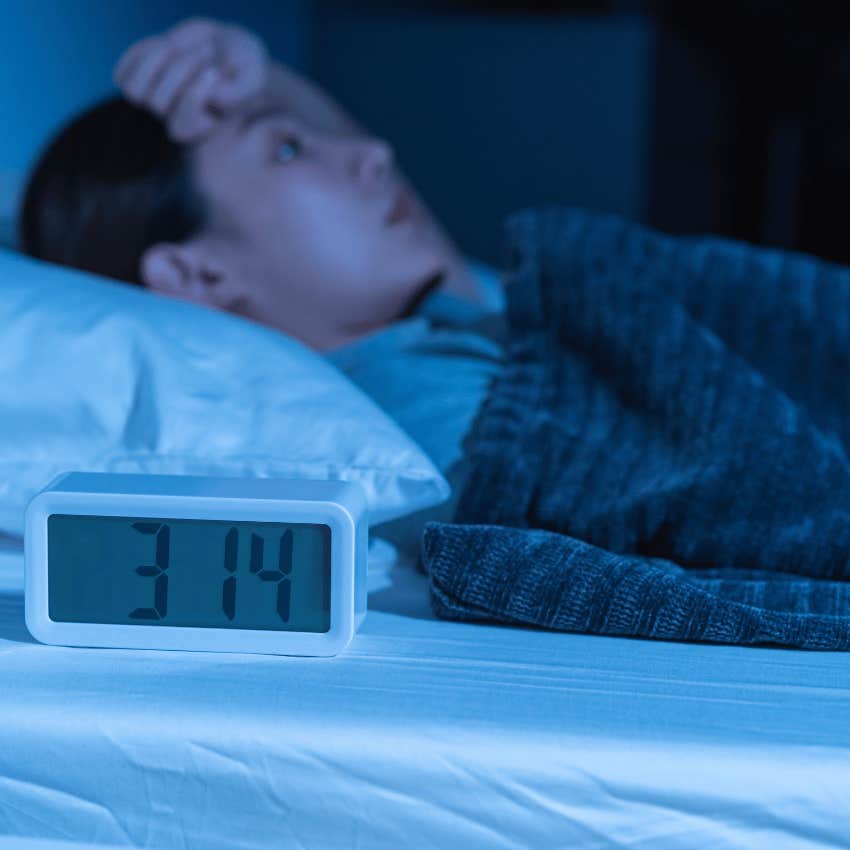How I Almost Obliterated My Career Without Realizing It — 'A Warning To Everyone Who Works From Home'
My ambition to work on my own schedule blew up in my face.
 doucefleur, Nastco | Canva
doucefleur, Nastco | Canva When it comes to work, I’m a bit of an addict. I get panicky if I don’t have enough on my plate. For employers, this often is a great thing. For yours truly? Well, not so much.
As a freelancer who is famous for being prolific with their work, I tend to bite off more than I can chew. This comes with another major vice that is often overlooked: my insomnia.
According to research, the societal burden of insomnia in the United States is substantial, with an estimated one-third of all US adults experiencing weekly difficulties with nighttime sleep and an estimated 50–70 million people complaining of nighttime sleep loss associated with daytime impairment.
When people hear the term “workaholic” and hear I pull all-nighters, it tends to sound like a humble brag.
I don’t know many bosses who don’t like the idea of having workers who toil around the clock for their projects. For the longest time, I did think it was a flex to show off how much work I could do.
After all, I had a background in working for pressure cooker-style content mills. Being the most prolific writer in a content mill is generally a good way to keep your job — even if it is low-paid work.
My workaholic attitude fell apart at the seams when I ended up trading healthy sleep for more money.
 Kmpzzz | Shutterstock
Kmpzzz | Shutterstock
When I was at my last apartment, I would work 12 to 16 hours a day at times. My legs would get swollen because I wouldn’t walk. All I’d do is eat, sleep, and work. Why? Because I had to do that to afford my place and because I grew up in a society where your paycheck dictated your value. So, little by little, I’d sleep less and less. Then, I’d work more and more.
The trade-off between work and sleep didn’t seem to affect me at first. Most people who are runners have heard of getting a second wind, or a “runner’s high.” Around hour 12 or so, I’d often stop feeling sleepy and start feeling more energized. It felt as if I just woke up from a deep sleep.
What I didn’t realize was that I was extremely tired. My body just stopped registering it after a while. So, I was working while undergoing extreme fatigue without actually realizing how tired I was.
So, I’d continue working like a maniac. I’d keep up the meetings. Half the time, I’d smile and nod, not even fully grasping what I was talking about or what I was agreeing to. I was able to keep up that good look for a while until the cracks began to show.
Eventually, my lack of rest caught up with me.
Photographers started to mention that I didn’t look too good. My work started to sound bland and monotonous. People mentioned that it seemed like I was not really as into my work as I once was.
My clients started to notice that I wasn't reading the instructions they gave me. I’d correct things in my articles, but only halfway. Then, I’d get irritated because I wouldn’t understand their feedback.
My irritability began to take center stage. People started to notice that I was increasingly cantankerous and belligerent. I started to cover it up by using various substances (mostly booze) to try to paste a smile on my face.
My husband started to mention that I should “probably take a break for a day or two.” I refused. I had to work. Couldn’t anyone see that I needed to work? I’m fine, I thought.
All the while, I didn’t feel sleepy. I just felt like it was harder and harder to focus. Others were the problem, not me. I just needed people to talk to me a bit more or to lay off me.
Sure, I could barely figure out the titles of my next articles, but I was fine. Why are my neighbors saying I don’t look okay? Why are people saying I don’t listen to them? Eh, who cares? They don’t get it. Clearly.
My lack of sleep all culminated in a psychotic break.
Eventually, my lack of sleep started to have serious effects on me. By the time it got really bad, I was sleeping in two-hour shifts. If I slept longer, it was because I was drinking to knock myself out.
I still didn’t feel sleepy. I couldn’t feel sleepy. I was on edge 24/7. My apartment was shot at. I couldn’t sleep if I wanted to. I was getting bad news while I was there. People kept telling me I needed to stop working.
One night, I looked at my screen and burst into tears. The letters were dancing on the screen, shadow people were flitting about around the corners of my eyes, and I started to hear voices. I blacked out.
I don’t remember what I did; it was a haze of me trying to jump off a bridge and screaming bloody murder. I passed out in the hospital and slept for about 18 hours.
I woke up in the hospital after a suicide attempt. Yes, sleep deprivation, PTSD, and my addiction to work were all mentioned as primary causes for the devastation that I wreaked on my life. All my contracts were put on pause. My career was almost destroyed.
Burnout, an occupational syndrome of exhaustion, cynicism, and professional efficacy caused by chronic workplace stress, has been gaining interest as a potential risk factor for suicidal ideation among employees.
Suicide is one of the major preventable causes of mortality. Globally, most suicide deaths occur in the working-age population 15–64 years old.
 Motortion Films | Shutterstock
Motortion Films | Shutterstock
People often assume that exhaustion feels exhausting, but that’s not always true.
Exhaustion is not always sleepy. It can be irritable. It can be brain fog. It can be that weird gray feeling where you see words on paper but can’t understand them or can’t register them anymore.
You should never make major decisions or work on major projects when you feel draggy, disoriented, or manic. You should never do more than 50 to 60 hours of work a week. Doing more than that starts to eat into your sleep schedule.
If people tell you that you need a break, believe them. If people tell you that you need sleep, believe them. There is no paper so pressing, no promotion so alluring that you should trade your health for it.
Since my breakdown, I started to implement several major changes in my life:
- I stopped working with clients who didn’t pay me a fair wage. If I pick a client, it’s because I believe in the work they want me to do. If the wage is not equivalent to a decent income for the hours, it’s a no.
- I cut my bills so that I can turn away clients that don’t respect me. I don’t make much money right now. I don’t. I had to downsize my living situation so I could get my finances straight. I’d rather live the way I do now than grind myself to the bone for people who treat me poorly. Abuse from clients made me lose sleep before.
- I began to say “no” and “later” more often. Before my meltdown, I also did the majority of the housework despite working more hours than my spouse. I have no problem telling my spouse to do his stuff nowadays.
- I started to lean on others more. This is not just a financial thing, though my husband is now the primary breadwinner. It’s also an emotional thing and a chore thing. I stopped trying to shoulder everything myself.
- I began to invest in delegating tasks to others. I hired a lawyer to help me with my bankruptcy filings. I’m going to be hiring a social media marketer and a couple of other people as soon as I can raise funds for it. Why? Because I need to claw back some time for myself.
- I force myself to sleep at least 7 hours a day. Yes, I take naps. Yes, I typically wake up at 1 PM every day. I don’t care if my sleep schedule is strange. While my PTSD makes it hard for me to sleep a full shift, I make my sleep work.
- I taught myself that there’s a difference between “doing things” relaxation and “doing nothing” relaxation. Going to the boardwalk and hitting an arcade is relaxing, but it doesn’t give you rest. Going to a spa to get a massage will relax you and maybe get you rest. You need both types of relaxation, just in case you don’t know.
- I stopped drinking. Sober since May!
- When I need a break, I tell my clients. My clients understand. If they don’t, they aren’t my clients for much longer.
- Finally, I learned to stop in my tracks when I noticed the warning signs of overwork. If I feel brain fog, irritability, random bouts of sadness, or something similar, I stop working and hit my bed. It does wonders for me.
Ossiana Tepfenhart is a writer whose work has been featured in Yahoo, BRIDES, Your Daily Dish, Newtheory Magazine, and others.

